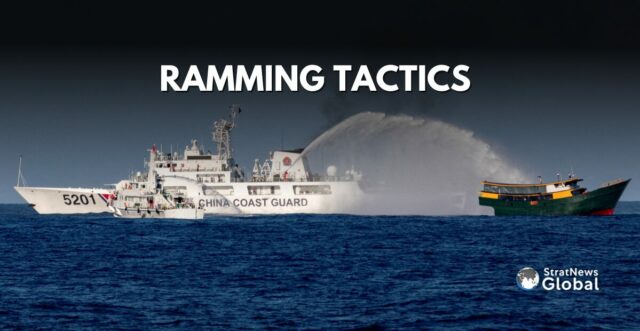The Philippines has declined offers of assistance from the United States for operations in the South China Sea, following a recent conflict with China over resupplying Filipino troops on a contested shoal, according to military chief General Romeo Brawner.
Rising Tensions and Recent Incidents
In the past year, tensions in the disputed South China Sea have escalated into violence. On June 17, a Filipino sailor lost a finger in what Manila described as an “intentional high-speed ramming” by the Chinese coast guard. Despite the US, a treaty ally, offering support, Manila prefers to handle these operations independently. “We try to exhaust all possible options that we have before we ask for help,” General Brawner told Reuters.
The 1951 Mutual Defense Treaty
The Philippines and the US are bound by the 1951 Mutual Defense Treaty (MDT), which can be invoked in the event of armed attacks on Philippine forces, public vessels, or aircraft in the South China Sea. Confrontations between the Philippines and China have increased as Beijing presses its claims, while Manila continues to supply soldiers on a rusting warship grounded on a contested shoal.
Calls for US Naval Support
Some observers, including former US National Security Adviser Matt Pottinger, have suggested direct US naval support for resupply missions. However, Philippine National Security Adviser Eduardo Ano stated that the Philippines prefers these operations to remain purely Philippine. “This is our legitimate national interest, so we don’t see any reason for them [the US] to come in,” Ano told Reuters.
Diplomatic Engagements
Despite recent tensions, Ano mentioned discussions with his US counterpart, Jake Sullivan, focusing on shared concerns over China’s actions. He emphasized that the MDT was “far from being invoked,” expressing confidence in easing tensions while maintaining the Philippines’ national interests.
US Support and Strategic Importance
Though specifics of the US offer remain undisclosed, Greg Poling, a South China Sea expert, suggested the US might provide naval escorts for resupply missions. Washington has already offered some limited support, including consulting on stabilizing the BRP Sierra Madre, grounded on Second Thomas Shoal.
International Legal Context
In 2016, the Permanent Court of Arbitration in The Hague ruled that Beijing’s extensive South China Sea claims via the nine-dash line lacked a basis under international law. Despite this, China continues to assert its presence, deploying coast guard vessels, which has alarmed the Philippines, other Southeast Asian claimants, and the US.
Commitment to Self-Reliance
General Brawner emphasized that the US support offer was not a direct response to the recent incident but rather a reflection of the enduring alliance. However, following the president’s directive, the Philippines prioritizes self-reliance in handling these conflicts.
While China claims nearly all of the South China Sea, a crucial shipping route with approximately $3 trillion in annual trade, other nations, including Vietnam, Taiwan, Malaysia, and Brunei, also have claims to parts of the region.
With Inputs from Reuters
Research Associate at StratNewsGlobal, A keen observer of #China and Foreign Affairs. Writer, Weibo Trends, Analyst.
Twitter: @resham_sng





